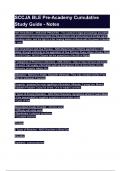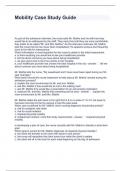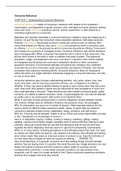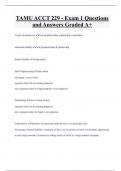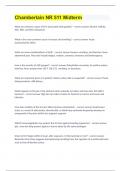CONTEMPORARY POLITICAL PHILOSOPHY
, Lecture notes CPP
Contents
Introduction.................................................................................................................................2
Justice..........................................................................................................................................4
Liberty.......................................................................................................................................11
Equality.....................................................................................................................................17
Community................................................................................................................................23
Democracy................................................................................................................................32
Intro of the Fabre book..............................................................................................................36
Future generations....................................................................................................................39
Multiculturalism........................................................................................................................42
Global Distributive Justice........................................................................................................54
Immigration...............................................................................................................................63
1
, Lecture notes CPP
Introduction
Eichmann Revisited
Hannah Arendt, Eichmann in Jerusalem: A report on the
banality of Evil (1963)
o A report on the trial of Adolf Eichmann
o Eichmann was a SS-Obersturmbannfuhrer
o Responsible for Jewish deportation to extermination
camps
o Captured by Israeli Mossad in Argentina
o Executed in 1962
Question for us: listening to his reasons for his actions
He obeyed orders and the law in the Nazi setting
o Would be perfectly reasonable in a normal setting (like
parking)
o It requires of us a different way of thinking; is there
something else we need to know to understand why we obey
the state, why we do what we do?
o To understand what it would mean to act morally we
need to have preceding knowledge of justice and the law
Political philosophy; taking intuition and subjecting them to rational
debate
What is political philosophy?
It is philosophy because it seeks truth - i.e. it attempts to
determine values and principles through the use of rational
argumentation
It is political because it pertains to state institutions (and
people in so far as they are public citizens)
Morality and law are entangled
Fabre:
A theory of justice sets out what is owed to whom. In other
words, it sets out the content of justice and delineates its scope
Rawls (Justice as Fairness: a restatement): Why political philosophy?
To uncover deep moral understanding and compatibility, even
at the root of warring people and ideologies. It is through digging
deeper into the core of our beliefs that we discover core similarities
at their root
o Liberalism; we might not agree/ like each other, but
there are rights we can agree with (Locke/Constant/Rousseau)
The point of PP = to reconsider our own institutions, as well as
our purpose in participating in these institutions
2
, Lecture notes CPP
e.g. why do we follow the law?
By looking at our institutions rationally, we understand their
own rational fabric
It is to help create the terms of a reasonable utopia. This is partially borne
of accepting the world as it presents itself to us, and partially to help us
structure a better world to our liking.
Aim of class (Part 1):
Focus on social justice. This follows John Rawls's proclamation
that 'justice is the first virtue of social institutions'
What is social justice? - it is a complicated term. How can
society be considered just or unjust? Can society act?
What we mean by social justice is a set of things
Justice in a single polity = social justice
What can the state legitimately coerce us to do?
How can (and should) the state constrain individual action?
How can the law be justified?
o e.g. Eichmann under Nazi law
How should society be organized?
o Hardest one, due to the need to embed the principles in
actual institutions that people will actually follow
This way of viewing the world is called 'ideal theory'. The pursuit of
'ideal' principles that should guide society
2 critiques to ideal theory:
Realism, or the claim that the pursuit of the 'ideal' of justice is
unmoored from reality (i.e. 'too idealistic')
o Pursuing idealist visions misunderstand the nature of
politics, which distils to vicious and (sometimes) irrational
struggles for power
Non-ideal theory, or the claim that ideal theories of justice
cannot apply to actual societies
o What is needed are principles for what to do in our
actual societies. Since ideal theory is unrealistic, this means
that pursuing it may actually be dangerous (because it is
unmoored from social reality)
Difference between realism and non-ideal theory
Realism
o Problem with philosophy: you have a principle and apply
it -> perverse complications of principles (so it isn’t realistic)
o If instead you start with politics and go back to
philosophy you are going to come up with better principles
3

